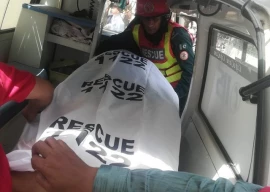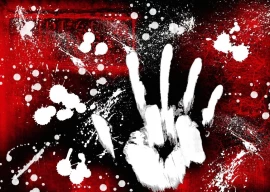
In a knee-jerk reaction, India expressed disappointment over the ruling by the ATC-I in Rawalpindi, where suspected Pakistani abettors of the Mumbai attacks are being tried.
The suspects include Zakiur Rehman Lakhvi, a commander of the Lashkar-e-Taiba militant outfit.
Judge Chaudhry Habibur Rehman rejected the commission’s report saying the panel was not allowed to cross-examine four Indian prosecution witnesses and hence its findings have no evidential value.
The eight-member commission – comprising defence lawyers and prosecutors – visited India in April and recorded statements of Ramesh Mahale, the chief investigation officer of Mumbai, Rama Vijay Sawanth, the magistrate who recorded Ajmal Kasab’s confession, and Shaliesh Mohiti and Ganash Dhondiraj, the two doctors who conducted the postmortem on 166 bodies.
The panel was, however, not allowed to cross-examine the prosecution witnesses.
“The commission was sent by the trial court in Pakistan and under national laws the accused have the right to question the witnesses testifying against them,” said Advocate Khawaja Haris Ahmed, the counsel for Lakhvi, in a petition filed on April 28.
The two countries had not reached an agreement on granting the accused their right to cross-examine the witnesses – and even if they did, such an accord was not legal.
Judge Habibur Rehman agreed the statements of Indian prosecution witnesses could not be taken into account. He ordered the commission to revisit India after seeking permission to cross-examine the witnesses.
Indian and Pakistani authorities should work out another deal to allow the defence lawyers to cross-examine the witnesses so that their statements could be used as evidence against the suspects.
The special public prosecutor of the Federal Investigation Agency agreed the statements carried no weight in a Pakistani court. He added that the two governments had agreed the panel would not question the Indian officials.
Upset over the ATC ruling, India said evidence collected by the commission had evidential value to punish the perpetrators of the Mumbai attacks, according to the Times of India.
“Our belief is that the evidence collected by the Pakistani commission is of evidential value,” Home Secretary R K Singh told reporters in New Delhi. New Delhi would seek a copy of the ATC ruling from the Pakistani authorities through Indian High Commission in Islamabad, Singh said.
“After we go through the judgment we will discuss with the Pakistan government as to what they propose to do about it,” he said.
Published in The Express Tribune, July 18th, 2012.
COMMENTS (3)
Comments are moderated and generally will be posted if they are on-topic and not abusive.
For more information, please see our Comments FAQ












































Time for Indian judges to come and get trained in Pakistan.
The PCO SC judges must release these "innocent" people with full honor and restitution. They must be honored and respected just like Qadri by the lawyers and judges. Let us keep our traditions alive no matter what the world says. We have the bombs and missiles and do not care about anything.
Look Pakistani courts can't even seem to be able to punish anti-Pakistan Islamic militants. To expect them to punish anti-India militants is naivety.
Pakistan is haunted by its own creation. Let Karma take over. India has to be vigilant and contain the chaos that will engulf Pakistan after 2014 and not let it enter India.
To expect Pakistan to do the right thing is to expect too much. Just back off and let them get what they deserve.